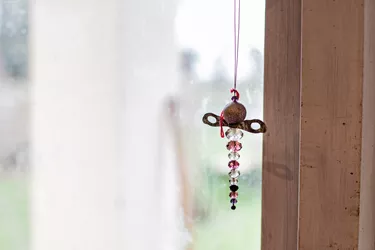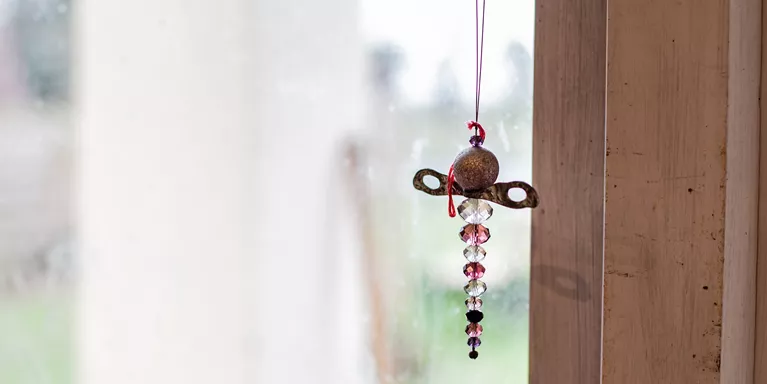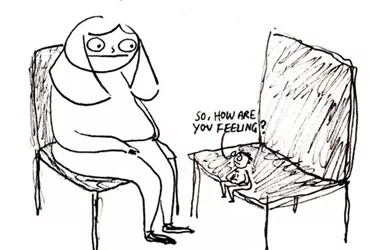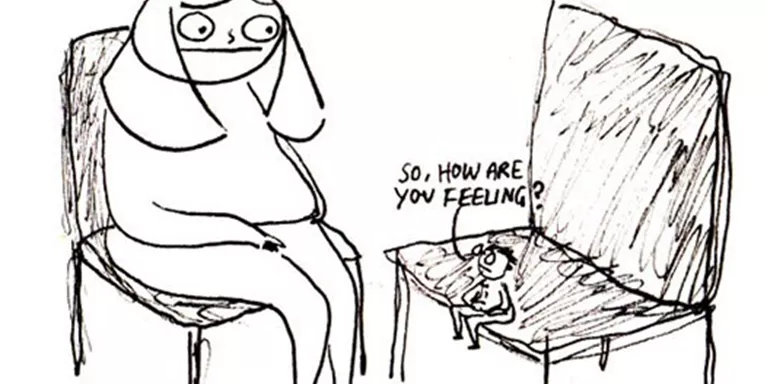Mind, body & spirit
Sarah blogs about the role spirituality can play in mental health treatments.
To all outward appearances I am plain old Sarah, ever grappling with the ravages of manic depressive illness, or bipolar disorder as it’s now known. I have sunk to the depths of the oceans of despair and soared higher than heaven itself. Rollercoaster rides would not compare, they would indeed seem tame in comparison to the delights of living with seesaw mood swings tinged with a sprinkling of psychosis.
Go beneath my ever-shifting exterior, however, and you will find my passions. Passion number one: raising my Autistic five year old and passion number two: my spirituality.
Both these passions provide a great many challenges, especially for a manic depressive with a history of chaos. I often find that the two combine rather nicely.
What do I, personally, mean by ‘my spirituality’? I am a spiritual person but not a religious one. I have beliefs that are unconventional and in line with ‘new age’ thinking and belief systems. I don’t pray in church, my heart is my temple. My religion is one of love and acceptance. I seek not to judge but to accept and to love unconditionally.
My own personal brand of spirituality and my personal practices are my mainstay in maintaining some level of normality and stability. I meditate and practice exercises relating to the body’s energy systems in order to maintain balance and promote healing. I work hard to live my life from a place of love and to meet life’s challenges gracefully and courageously.
Sometimes, though, things can get a little complicated! During my last manic episode I was having delusions of grandeur and started thinking I was Jesus’ mother reincarnated. Looking back I can see the humorous side and thankfully I am now fully aware that I am Sarah, mother and ex-teacher, here on Earth and trying to live a quiet life!
I have not encountered much support regarding spirituality in the mental health system. There was a chaplain who visited the local mental health unit, but apart from that there was nothing else, certainly no support for spiritual beliefs as an inpatient. In fact my own brand of spirituality has been looked upon with a modicum of suspicion during my lifetime round of psychiatrists’ offices! My beliefs also come under the category of ‘alternative’ and could even be classed by some as ‘delusional’.
I wonder just how many people with a mental health problem have a strong faith or spirituality yet are shown little support, either in the community or as an inpatient. To me, all paths lead home regardless of one’s particular faith. Spirituality would have been vital to the community in times gone by, much more so than present-day living. Spirituality can be a very healing part of one’s life. Having faith in something bigger than ourselves can be very empowering and soothing. I know there is a fine line, especially during times of psychosis, but there is a place for spiritual practices such as meditation and mindfulness, which can have a beneficial effect on stress levels and negative thinking patterns. Alternative therapies based on spiritual practices should be integrated into care plans too. Relaxation, reiki, spiritual healing, crystal healing, aromatherapy, all examples of practices aimed at promoting wellbeing and calm.
I, personally, would like to see the issue of spirituality addressed as part of peoples’ care plans and programmes if that is what they desire. Spiritual beliefs play an integrated role in the whole person identity, and to create a balanced, whole person it is important to start treating them in a holistic way, not just as an illness. Mind, Body and Spirit, the magic ingredients!
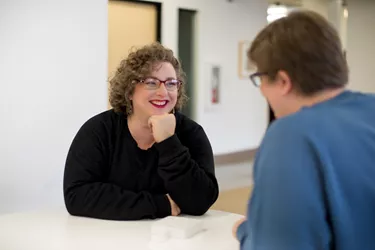

Information and support
When you’re living with a mental health problem, or supporting someone who is, having access to the right information - about a condition, treatment options, or practical issues - is vital. Visit our information pages to find out more.
Share your story with others
Blogs and stories can show that people with mental health problems are cared about, understood and listened to. We can use it to challenge the status quo and change attitudes.










